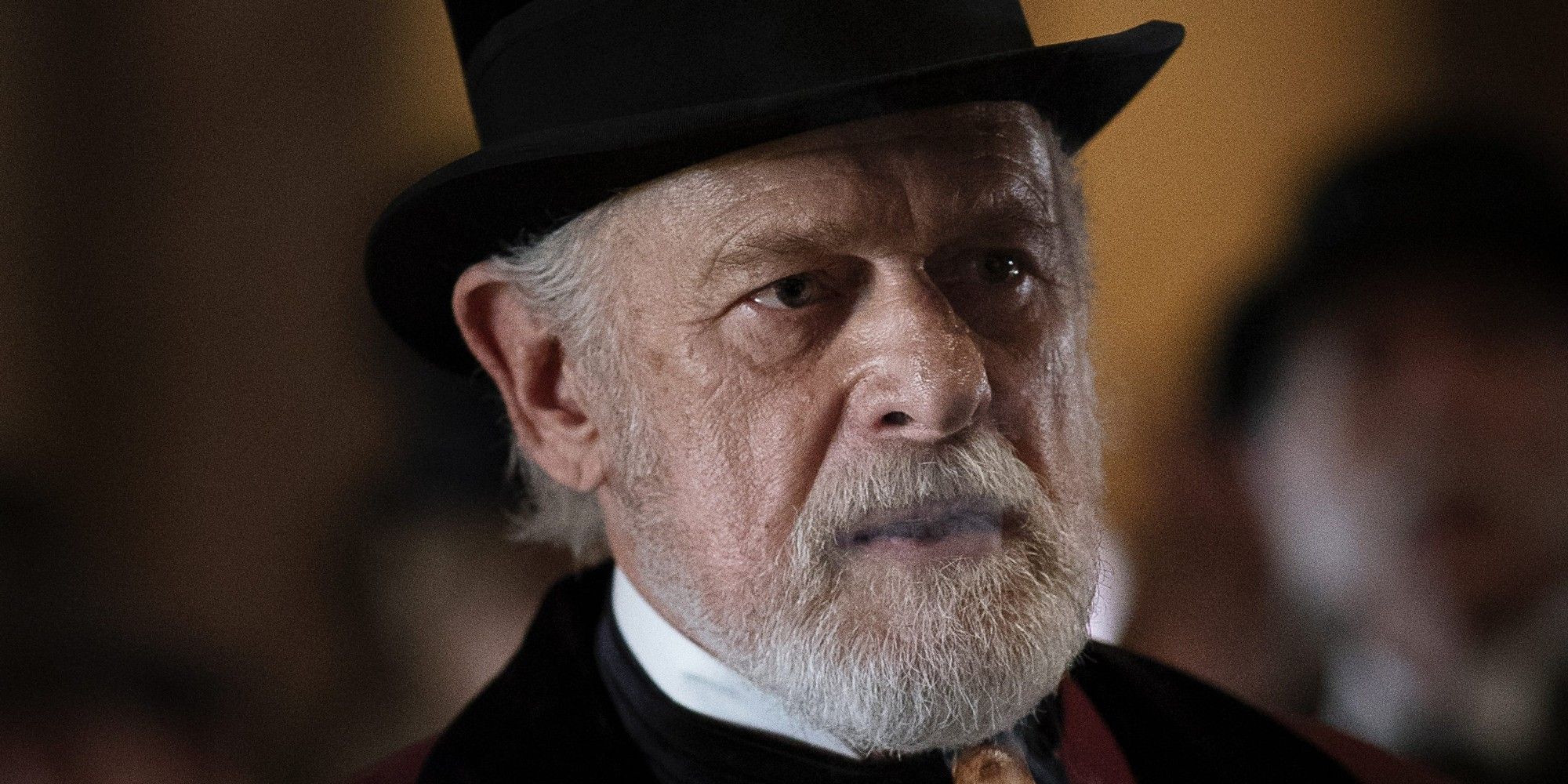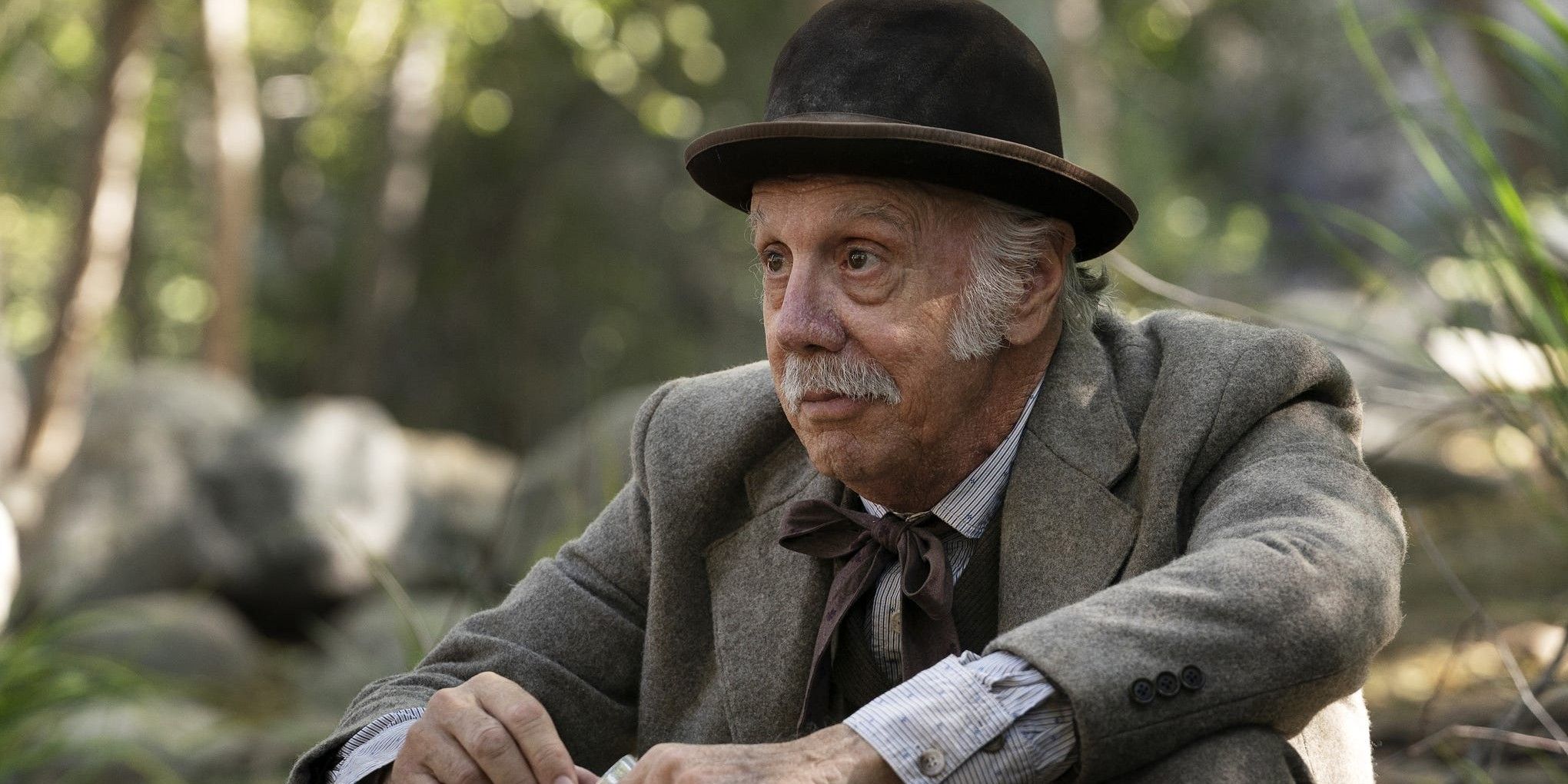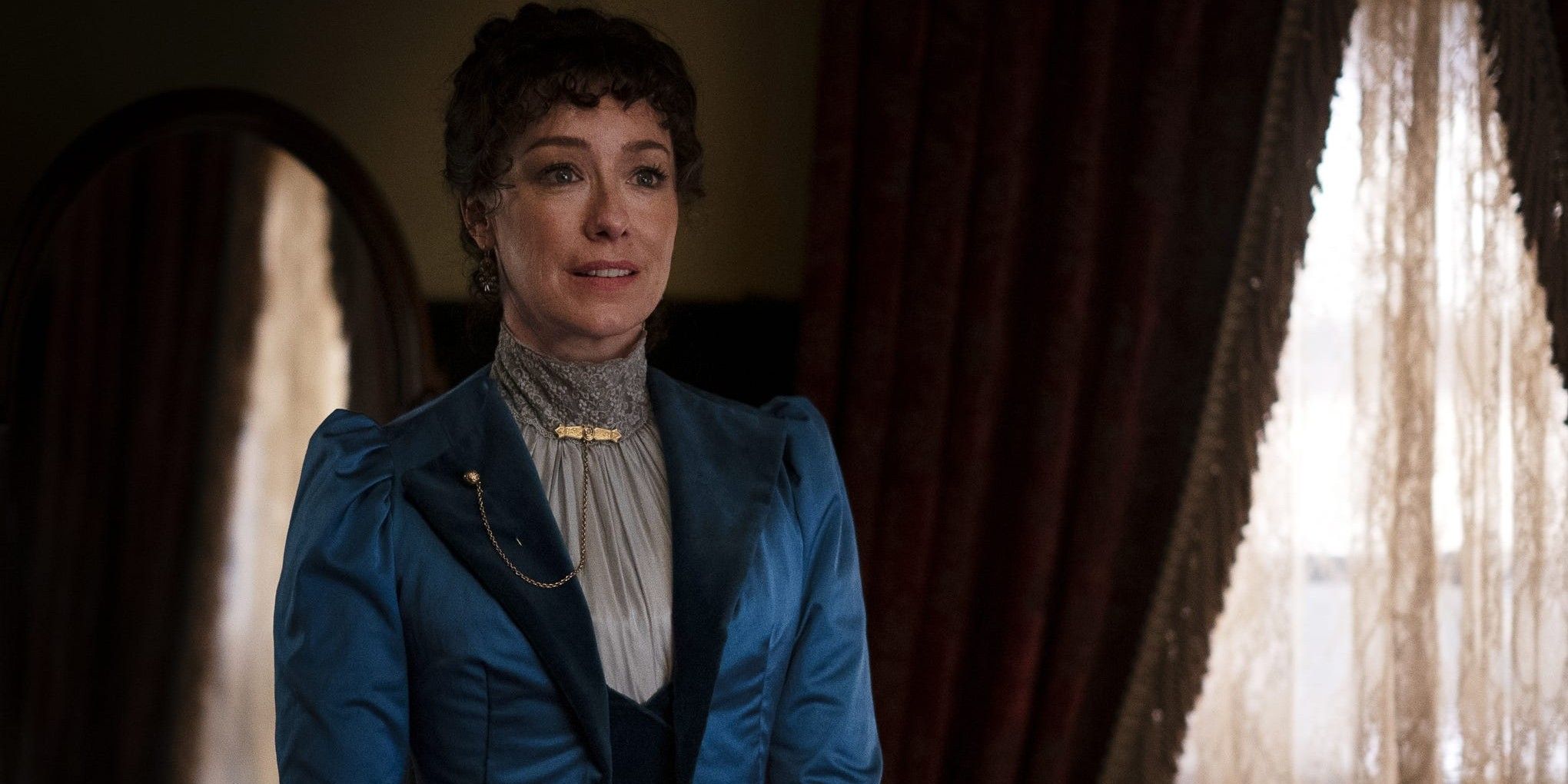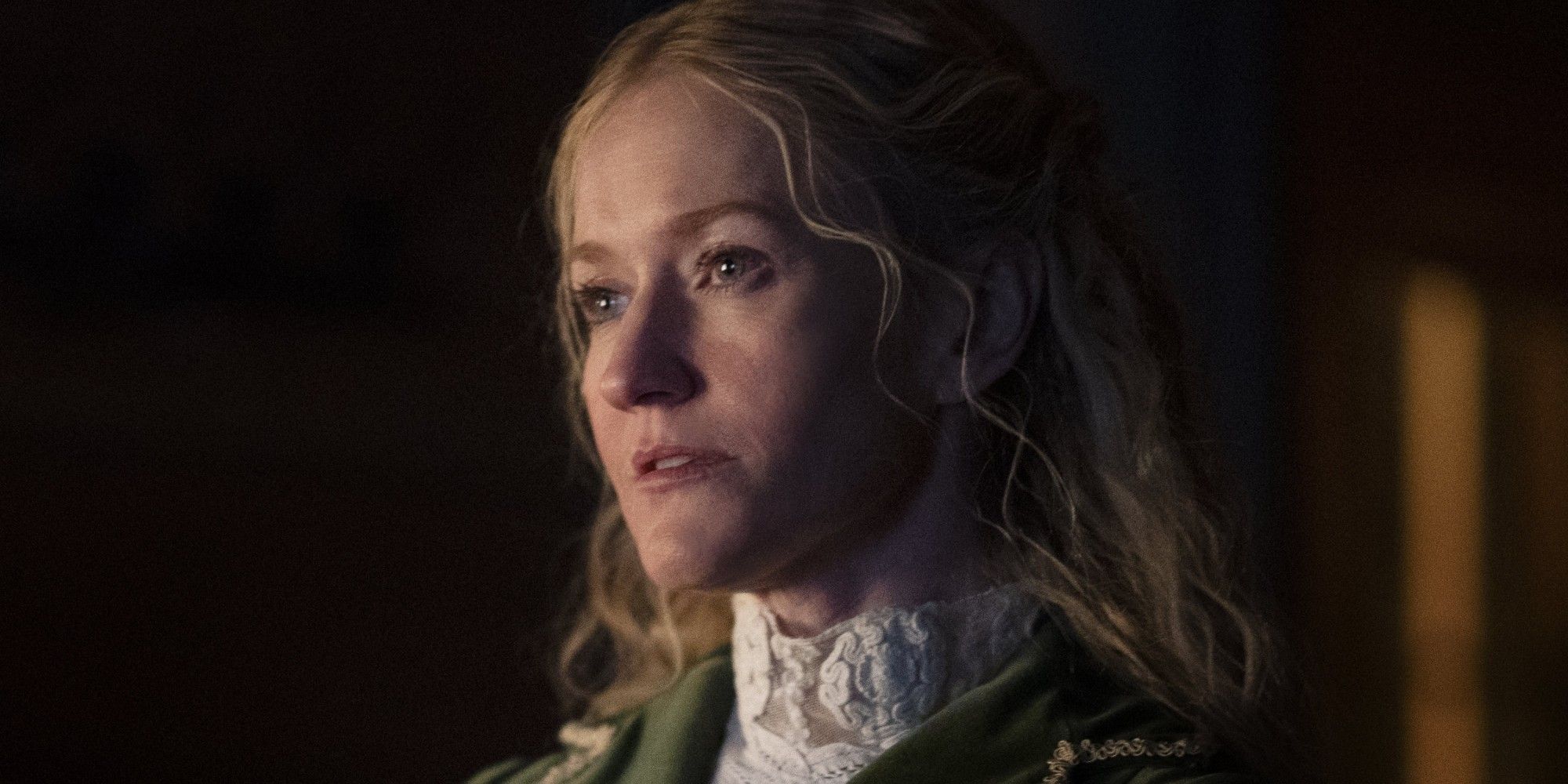Deadwood: The Movie has arrived more than a decade after HBO’s original show last aired, and provides a fittingly poignant ending to the series. Created by David Milch, the Deadwood TV series aired for three seasons from 2004-06, and earned critical acclaim (along with several awards) for its profanity-laced, yet Shakespearean dialogue, rich performances, and sharp attention to historical detail. The show took place in South Dakota’s Deadwood settlement circa the 1870s, and revolved around the various characters who lived there (ranging from fictional people to real-life historical figures like Wild Bill Hickock and Calamity Jane).
Due to its high cost and modest ratings, Deadwood was on the bubble for cancellation following the completion of its third season. And although Milch rejected HBO’s initial offer for a shortened fourth season to end the show, he and the network later agreed to make a pair of two-hour films to wrap things up. Ultimately, though, the telefilms never came to pass and Milch thereafter expressed doubt that Deadwood would ever return in any form. That is, until early 2016, when (following rumors that talks for a movie had resumed) HBO gave the go-ahead for a single Deadwood film. Scheduling proved to be the main issue after that, before production began in fall 2018 and the movie aired less than nine months later.
Written by Milch and directed by Daniel Minahan (who also helmed a handful of episodes on the original show), Deadwood: The Movie takes place in 1889, as Deadwood residents past and present gather to celebrate South Dakota’s approaching statehood. That includes George Hearst (Gerald McRaney), the ruthless businessman who was introduced in Deadwood season 2, and went on to become the series’ main antagonist in season 3. True to real life, Hearst is a state senator for California when he makes his way back to Deadwood for the festivities – and, in many ways, it’s necessary for the show’s characters to deal with him once and for all, before they can move (or, in certain cases, not move) into the next stage of their lives.
Hearst is Finally “Defeated” in Deadwood: The Movie

Never one to miss a business opportunity, Hearst is involved in building power lines that will bring electricity to Deadwood. As a result, he’s retuned to town in the hopes of convincing Charlie Utter (Dayton Callie) to finally sell the local territory he spent years working and saving up for. Even when he realizes that Trixie (Paula Malcomson) – who, despite being pregnant with Sol Star’s (John Hawkes) child, decides to vocally criticize Hearst while he passes through the town’s thoroughfare – is the person who really shot and tried to murder him ten years ago (not Jen, the prostitute whom Al Swearengen killed and passed off as Hearst’s assailant), he tries to use it as leverage against Al (Ian McShane), to get him to support his bid to purchase Utter’s land.
However, when Hearst approaches him about selling his property, Utter calmly but firmly refuses, making his disdain for Hearst apparent… though, in doing so, he seems to know he’s signing his own death warrant. Sure enough, when Seth Bullock (Timothy Olyphant) – who’s become a U.S. marshal in the last ten years – goes looking for him later that same night, he finds Utter dead on his land, having been shot in the head. And while Samuel Fields (Franklyn Ajaye) had been fishing nearby and saw what happened, he refuses to identify Utter’s killers, telling Bullock that (as the rare black man who lives in Deadwood), he knows he’s likely to be either blamed for the crime himself or killed before he can give testimony. Not long after, the two assassins Hearst recruited to shoot Utter attempt to hang Samuel, before Bullock and Sol stop them (though, they manage to viciously beat Samuel first, leaving him on the verge of death).

At the same time that Hearst’s hired guns are trying to kill Samuel, Hearst attempts to outbid Bullock and his competition when Utter’s property is put up for sale, following his death. And just when he’s on the verge of winning the auction, Alma Ellsworth (Molly Parker) decides to join in and draws from her own substantial wealth to outbid Hearst, much to his disgruntlement. When his attempt to murder Samuel then fails – after E.B. Farnum (William Sanderson), who found out what Hearst was up to earlier, warns Bullock – and he’s almost exposed as the one who ordered Utter’s execution, Hearst tries one final trick: bringing in a pair of lawmen from outside of town to arrest Trixie for attempted murder, in the midst of her and Sol’s wedding celebration.
Instead, Bullock steps in to remind the officers they have no jurisdiction there, and arrests Hearst for Utter’s murder. He thereafter marches Hearst out into the town’s thoroughfare, where Hearst is attacked and beaten by several onlookers who’re enraged over what happened to Utter (a widely respected figure in Deadwood). After a moment, Bullock does the right thing and stops them, before locking Hearst up in the local jail and leaving him there to deal with the following morning.
Deadwood Doesn’t Need Season 4 Anymore

In the end, Hearst’s unquenchable greed is his downfall, and he unites pretty much everyone in Deadwood against him (including, those who’ve been enemies in the past) when he kills Utter – perhaps the most respected man in town. That said, Deadwood: The Movie isn’t about “defeating” Hearst (who will no doubt get out of jail soon enough) so much as it’s about the show’s many characters making peace with their pasts, as they move into the future. For Alma, beating Hearst provides her with a sense of closure that she didn’t have at the conclusion of season 3, after Hearst had her second husband, Whitney Ellsworth, killed and Alma sold her claim to him, to avoid further violence. This seems to help her finally leave her old romance with Bullock behind and focus on her future with her now-grown daughter Sofia (Lily Keene), even though it’s clear the pair will always have feelings for one another.
Alma’s not the only one who benefits from outwitting Hearst at his own game. As Samuel tells Bullock towards the end of the movie, Utter was relieved after he turned Hearst down and ready to accept the consequences, knowing it would probably mean his death. Samuel appears to have accepted his own imminent death by that point, and helps Bullock to see that Hearst no longer has power over them, regardless of what he does to retaliate in the future (assuming he doesn’t just leave town for good). Along the way, Bullock also seems to realize he possesses the strength to be a better man thanks to his wife Martha (Anna Gunn) – whose appearance brought him to his senses earlier and prevented him from letting the town’s people beat Hearst to death – and he passionately kisses her upon arriving home, as a reflection of his commitment to her and their family.

As for Al: he spends the whole movie facing his mortality as his liver starts to fail him, but no doubt finds comfort in knowing that Trixie is once again safe from Hearst. Even before then, though, he takes steps to secure her future by revealing he’s leaving his saloon to her once he passes – knowing it’s going to happen any day – and giving her away at her wedding to Sol. And although Calamity Jane’s (Robin Weigert) efforts to rekindle her romance with Joanie Stubbs (Kim Dickens) are somewhat disconnected from all this, she similarly makes peace with her history in Deadwood (specifically, Wild Bill and Utter’s deaths) when she prevents Bullock’s deputy Harry Manning (Brent Sexton), who’s been secretly working for Hearst the whole time, from shooting him in the back. Jane tries to credit her actions to Wild Bill’s spirit watching over her, before Joanie tells her matter of factly that it was all her, and the pair are later seen walking off into the night… and towards a brighter tomorrow.
Obviously, Deadwood: The Movie can’t and doesn’t try to pay-off every plot thread left dangling at the end of season 3, but it leaves the larger story at a worthy stopping point – and not just because, as the final shot and the falling snow at the end symbolize, Al is hours, if not minutes, from dying. There’s a bittersweetness to the film, flaws and all, from its last few minutes to the fact that certain Deadwood actors (like Powers Boothe) passed away before they could return for the movie, and the recent revelation that Milch was diagnosed with Alzheimer’s disease while he was writing the script. More than that, it’s given fans the chance to say farewell to the series in a much more satisfying way than they got to when season 3 drew to a close, thirteen years ago. It might leave them wanting more (namely, a fourth season), but the best things always do.




